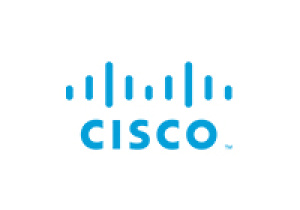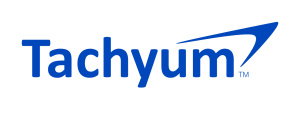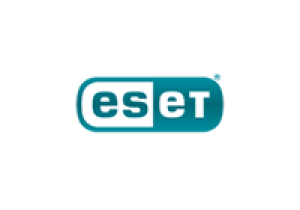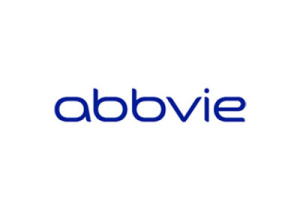Manuel V. Mendigutía Arévalo
Education:
1997/02 Degree in Economics. University of Salamanca (Spain).
2002/03 Specialization in European studies. Katholieke Universiteit Leuven (Belgium).
2003/04 Master in International Business Economics. Graduate Business School. Katholieke Universiteit Leuven (Belgium).
Experiences:
2004/05 Researcher in European Policies of the Government of Extremadura. In charge of IS and R&D&Innovation affaires at the Office of Extremadura in Brussels.
2004/05 Representative of FUNDECYT (Foundation for the development of science and technology in Extremadura). Developers of the GNU/Linex (FLOSS) project that obtained the European Regional Innovation Awards of the European Commission in 2004.
2005 European affaires officer of the Federation of Municipalities and Provinces of Extremadura.
Presentation: Extremadura Approach for Internet Accessibility to Citizens
Presentation: Open Source Strategy for Spanish Region Extremadura
-
Extremadura Approach for Internet Accessibility to Citizens | Kongres ITAPA 2005
Extremadura is the poorest region of Spain, lagging behind the rest of the country in both the economic and technological arena. Though short on financial resources, the region has set very high goals for itself in its Regional Strategy on Information Society and the results are being so satisfactory that have placed the regional strategy as a worldwide best practice.
The program eExtremadura looks for the fulfilment of three horizontal objectives (the Differential Technological Literacy, the Creation and Adaptation of digital contents and the promotion of a new business and labour culture) through project calls co-financed by the private sector, the University of Extremadura and the local administration.
The Regional Ministry of technological development has launched as horizontal strategic action the project GNU / LinEx , consisting of the distribution and the use of an operating system and applications based on Free/Libre and Open Source Software (FLOSS).
gnuLinEx was designed as support to the Education Technological Network (An Intranet that connects all schools of the region with broad band access and a methodology for the creation and adaptation of educational contents). Consequently the ratio of a PC for two pupils in secondary education and a PC for six pupils in primary education were reached, which mean that today 66.000 computers work with gnuLinEx, 183.000 pupils and 16.000 teachers using this alternate software in the Technological Literacy framework.
The characteristics and particularities of GNU/ LinEx allows to complete the following objectives:
1) Sustainability of the regional strategy framework of eExtremadura, particularly in Education Technological Network actions.
2) Independence of the Public Administration, the private sector and the citizens on the software market, characterized by the dominant position of a single supplier.
3) Cost savings in the setting-up of the software and future updates.
4) Finally maintaining the sustainability of the regional strategy, started in 1997, with a methodology grouping together all regional agents whom may contribute to the Information Society development in an Objective 1 Region and to diffuse it to other regions and countries.
Extremadura is the first Regional Administration which has promoted Free and Open Source Software among his citizens and the first one to develop and distribute FLOSS together with technical support in the systems’ migration. The innovative character is not technological but methodological, i. e., a political top to bottom strategy with a clear objective:1 PC per two students, already reached in 2003. The choice of a distribution which is axed on the needs of end users principally and with a design that allow the user to recognised himself culturally when using GnuLinEx, The establishment of a support system to ensure the migration through the adaptation of existing actions and projects, Demonstration effect: The relative ease with which the migration was assured has allowed all regional agents envisaging the use of new tools of the Information Society, through a cheap software, with low maintenance cost, that assures control of updates, adaptations and future modifications, as well as independence from a single supplier, The control of the updates and future developments is exercised by the Administration.
Public Administration invests a big part of it budget without any ROI in the purchase of Proprietary Software, as well as in maintenance and support of its data networks. Thus FLOSS is an alternative and a great opportunity allowing to save the expenses of licenses as well as create new lines of investigation and development in this domain. Furthermore, the access to deep knowledge of computer systems, the possibility of improvement, use and redistribution without barriers and limits, are the best guarantees for the technological development of the Region of Extremadura in an independent way. Those factors allow the creation of local start-up in the sector, favour the investigation and the development, slow down the brains drain and assure the chances of problem resolution. The wide spectre of actions is demonstrated by the numerous projects presented to the program e-Extremadura, gnuLinEx had allowed the creation of a new regional market which is based on a new business model and had promoted the creation of new companies and business in contents development and applications based in free software.
Financially, the sustainability of LinEx is assured due to the fact that it does not represent an additional and new costs (training, maintenance, ..) rather than commercial systems for the administration. The migration has been completed on the Educational Systems with success, so the administration will continue to provide technical support regarding the results, advances and new releases, modifications etc.. regarding gnuLinEx..
The transferability is viable for other sectors of the region as well as outside the region. Firstly because the applications are based in a system which can be copied, modified, distributed and used freely thus adapting themselves to concrete needs of sectors or users.
A Cooperation Protocol was signed between the Presidents of Extremadura and Andalusia, in which the Region of Extremadura facilitated to the Region of Andalusia the transfer and usage of gnuLinEx resulting in the launching of the project GUADA LINEX in Andalusia.
Other regional governments such as the Basque country, Canary Islands and Valencia have been also interested for this distribution. The Ministry of Education coordinates the eAdministration Workgroup which depend on the National Ministry of the Public Administrations.
Within the framework of other actions of European regional policy, the project to eSafer was presented (Call for Interreg IIIC) whose objective is to validate the LinEx experience in innovative actions programs of Madeira Island (P), Lazio (I), Nord Pas de Calais (F), Balear Islands (E), Andalusia (E) and in IS strategic action in Athens (GR).
Worldwidely, gnuLinEx will be transferred to the other administrations and entities such as the Municipality de Portalegre and to the NIIT of Brazil. The Extremadura Government is co financing in Colombia COL-LINEX. Universities of Argentina and Chile have been also interested for this distribution. In the case of the Iberoamericaina Virtual University, contacts have already been initiated for the development of a free software program. gnuLinEx is been proposed in a EU-India Economic Cross Cultural Programme of New Delhi. -
Open Source Strategy for Spanish Region Extremadura | Kongres ITAPA 2005
Extremadura is the poorest region of Spain, lagging behind the rest of the country in both the economic and technological arena. Though short on financial resources, the region has set very high goals for itself in its Regional Strategy on Information Society and the results are being so satisfactory that have placed the regional strategy as a worldwide best practice.
Extremadura is the first Regional Administration which has promoted Free/Libre and Open Source Software among his citizens and the first one to develop and distribute FLOSS together with technical support in the systems’ migration. The innovative character is not technological but methodological, i. e., a political top to bottom strategy with clear objectives and outcomes:
- 1 PC per two students, already reached in 2003. (The average in the EU is 11)
- The choice of a distribution which is axed on the needs of end users principally and with a design that allow the user to recognised himself culturally when using GnuLinEx.
- The establishment of a support system to ensure the migration through the adaptation of existing actions and projects.
- Demonstration effect: The relative ease with which the migration was assured has allowed all regional agents envisaging the use of new tools of the Information Society, through a cheap software, with low maintenance cost, that assures control of updates, adaptations and future modifications, as well as independence from a single supplier
- The control of the updates and future developments is exercised by the Administration.
http://www.linex.org
http://europa.eu.int/idabc/servlets/Doc?id=1641




















